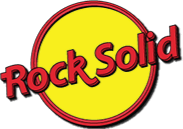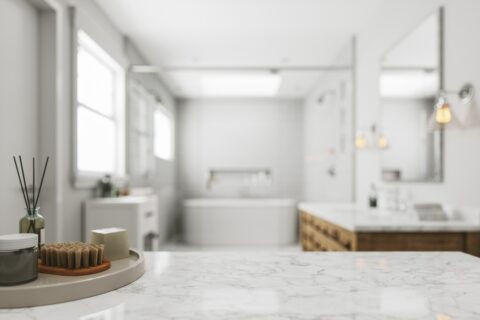Picking the Right Outdoor Kitchen Countertop
An outdoor kitchen can transform ordinary grilling into an extraordinary culinary experience. At the heart of this backyard transformation is picking the right outdoor kitchen countertop. This seemingly understated component is essential for creating a functional, aesthetically pleasing space. Here’s a look at some of the materials you might be considering and why some are better suited to outdoor use than others.
Granite Outdoor Countertop
Granite is a top contender for both indoor and outdoor kitchen countertops. It’s resistant to heat, staining, scratching, and chipping, making it a practical choice for outdoor cooking. Plus, as a natural stone, granite is well-equipped to handle sun exposure and extreme temperatures.
Just keep in mind that granite requires regular resealing to maintain its resilience, whether used indoors or for an outdoor kitchen countertop. Also, granite can become quite hot when exposed to direct sunlight, so positioning it in the shade or opting for a lighter color is advantageous.
Soapstone Outdoor Kitchen
Soapstone has a rustic and charming appearance. It comes in shades of gray, white, and soft black, often with veins or speckles to enhance its appeal. This dense, non-porous material resists bacteria and chemicals naturally and outperforms granite in thermal conductivity.
However, the high talc content of soapstone makes it less scratch-resistant and increases maintenance requirements, including the need to apply mineral oil once a month. Also, soapstone naturally darkens over time, so remember this when designing your outdoor kitchen.
Quartz May Not be Best for an Outdoor Kitchen
Quartz countertops are known for their non-porous nature and minimal maintenance requirements, making them popular for indoor settings. Their uniform color patterns and resistance to stains, scratches, and spills make them an appealing option.
However, despite these advantages, quartz is not ideally suited for outdoor kitchens. The primary concern is this material’s sensitivity to UV rays and temperature variations, which can lead to discoloration over time.
Marble is Also Not Ideal for Outdoor Kitchens
While elegant and timeless, marble isn’t hardy enough for an outdoor kitchen countertop. Its porous nature makes it susceptible to stains, and it scratches relatively easily. In addition, marble doesn’t fare well under direct sunlight, leading to discoloration. For these reasons, marble is best left to your indoor living space.
Matching Your Lifestyle and Environment
When choosing your outdoor kitchen countertop, consider how frequently and intensively you plan to use the space. Your material selection should also align with the design and layout of your outdoor kitchen. Factors like maintenance needs, design preferences, exposure to sunlight, and your local climate affect the best material for your needs.
Get Help Finding the Perfect Outdoor Kitchen Countertop
Rock Solid Custom Granite understands the importance of carefully selecting an outdoor kitchen countertop. Our high-end custom stonework and countertop installation services ensure a finished product that fits your space and lifestyle. With years of experience serving our Colorado customers, we bring expertise and quality craftsmanship to every project. If you’re Durango, CO, we invite you to contact us at (720) 344-7625 to explore your countertop options or request an installation estimate. Let us help make your outdoor kitchen functional and beautiful.


